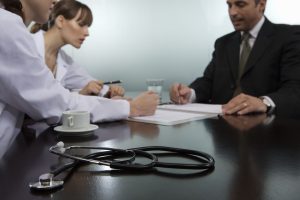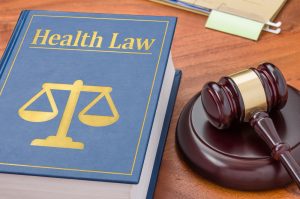In a world where the complexities of healthcare intersect with the intricacies of law, the role of a professional with a legal nurse certification becomes indispensable. This unique blend of nursing expertise and legal acumen allows for the translation of medical jargon into comprehensible, court-admissible documentation and expert opinions, particularly in cases of medical malpractice. The importance of such a role cannot be overstated, as it not only bridges two highly specialized domains but also contributes significantly to the administration of justice in healthcare-related legal disputes.

Writing an expert witness opinion in legal nursing is a critical task that can significantly influence the outcomes of legal proceedings. Nursing expert witnesses play a vital role in interpreting medical facts, establishing standards of care, and providing unbiased opinions that assist the court in making informed decisions. This article will delve into the various aspects of writing an expert witness opinion in legal nursing, from understanding the role and qualifications of a nursing expert witness to the impact of their testimony on legal outcomes. Further, it will dissect the practicalities of stepping into the shoes of a legal nurse consultant, navigating through the challenges and rewards inherent to the profession, and ultimately how one can build a robust career within this domain.
Key Takeaways
- Nursing expert witnesses must have the appropriate nursing education and clinical experience to provide credible testimony.
- Expert witness reports should be clear, concise, and well-structured to effectively communicate the expert’s opinions.
- Understanding the legal framework, including Rule 702, is essential for nursing expert witnesses to ensure their testimony is admissible.
- Maintaining impartiality and adhering to ethical standards are crucial for the credibility of nursing expert witnesses.
- Continuous education and professional development are vital for nursing expert witnesses to stay updated with legal and medical advancement
Exploring the Realm of Legal Nurse Consulting
Definition and Role
Legal nurse consultants are registered nurses who possess specialized training and knowledge, enabling them to provide expert consultation and analysis on medical issues within a legal context. They serve as vital liaisons between healthcare providers and legal professionals, assisting attorneys to navigate complex medical records, understand intricate medical procedures, and evaluate the merits of claims. These consultants review medical records, decipher medical terminologies, and analyze the chronology of events to identify potential deviations from accepted standards of care, thereby equipping attorneys with the necessary information to build strong cases.
Fields of Specialization
Legal nurse consultants can specialize in various fields such as medical malpractice, personal injury, workers’ compensation, and more. Each specialization demands a deep understanding of specific medical guidelines and practices. For instance, those specializing in medical malpractice focus on identifying negligence or substandard care by reviewing medical records. Similarly, consultants working on personal injury cases provide insights into the medical aspects of injuries caused by accidents or negligence. Their expertise is crucial in assessing the standard of care provided and determining whether there has been a deviation from this standard.
The Intersection of Healthcare and Law
Legal nurse consultants play an integral role at the intersection of medicine and law, providing attorneys with invaluable expertise that can significantly impact the outcome of a case. Their ability to dissect medical records, identify deviations from accepted standards of care, and effectively communicate complex medical concepts makes them essential assets in medical-related litigation. By collaborating with legal nurse consultants, attorneys can navigate the intricacies of medical issues and enhance their chances of achieving favorable claims outcomes. Moreover, these consultants stay updated with the latest advancements in both medicine and law to ensure they provide the most current and relevant advice.
The Art of Drafting Legal Nurse Consultant Reports
Defining the Nursing Expert Witness
An expert witness is someone who, because of their education, experience, or a combination of both, has knowledge that can inform decision-makers about nursing practice standards. The most common use of expert testimony in a nursing or medical negligence case is to establish what the reasonable standards are in the circumstances and whether the nursing care provided met those standards. Mastering the art of effective communication is paramount for an expert witness.
An expert witness must have some form of specialized knowledge and experience beyond that of the court in order to assist the court in coming to a proper understanding of the evidence. Nurses’ and doctors’ professional training, skill, and experience make them ideal expert witnesses to assist in applying the art and science of their practice to the facts the court must decide. Most jurors have a limited understanding of both areas.
An expert witness may come from a nurse defendant’s own state or may come from another jurisdiction. Generally, an expert witness is an individual who by training, education, and/or experience is determined to be qualified by a court as able to assist the jury in understanding health care and the role of health care providers, and are from the same profession (e.g., nursing).
Federal Rule 702 is a cornerstone in the legal framework governing expert witness testimony. This rule mandates that the expert witness’ scientific and specialized knowledge must assist the trier of fact in understanding the evidence or determining a fact in issue. Furthermore, the testimony must be based on sufficient facts and data, and it must reflect a proper application of reliable principles and methods.
Writing the Report

When drafting legal nurse consultant reports, it is imperative to recognize the dual audience that the report will address: the client (typically an attorney) and potentially their client as well. This awareness shapes the content and tone of the report, ensuring that information is delivered with clarity and professionalism. Legal nurse consultants must tailor their reports to meet the specific needs of these audiences, which may vary significantly based on the legal context and the medical specifics of the case. For instance, younger attorneys or those in smaller law firms might require more detailed explanations due to their limited access to medical expertise.
The effective legal nurse consultant report balances hard facts with a necessary degree of empathy. Empathy enhances the readability and relatability of the report, making complex medical information more accessible. However, too much empathy might risk the objectivity required in legal proceedings. Therefore, it is crucial to maintain professional boundaries and ensure that empathy does not overshadow factual accuracy and relevance. The use of empathetic language should aim to clarify rather than confuse, assisting attorneys in understanding the patient’s perspective without compromising the report’s objective integrity.
After reviewing the case materials, the next step is to formulate your expert opinion. This involves analyzing the evidence and identifying key points that support your conclusions. Your opinion should be based on a thorough understanding of the medical facts and the applicable standards of care. It is important to present your findings clearly and convincingly, as they will be scrutinized during deposition and trial testimony.
A comprehensive nursing expert witness report begins with a detailed review of all relevant documents. This includes medical records, depositions, and any other pertinent materials. Listing these documents is crucial as it provides a foundation for the expert’s opinions and ensures transparency in the review process.
The next step involves summarizing the medical events in a clear and concise manner. This summary should include the sequence of events, treatments provided, and any deviations from standard procedures. A well-structured summary helps in presenting a coherent narrative of the case.
In this section, the expert witness must explain the applicable standards of care. This involves detailing what a reasonably prudent nurse would have done under similar circumstances. The explanation should be based on established guidelines and practices within the nursing profession.
A well-structured report is crucial for effectively presenting facts and opinions. Establish the key points early, and then return to them as you elaborate. It is easier for people to follow your structure if they know in advance what you plan to discuss. Follow a logical format for presenting the key points. Consistently refer back to and develop the points you have told the reader you’ll be sharing with them.
When presenting your expert opinion, it is essential to balance objectivity and advocacy. You are tasked with providing unbiased opinions based on the facts of the case and your professional expertise, rather than personal biases or opinions. This balance ensures that your testimony is credible and reliable. Anticipating and addressing potential counterarguments strengthens your report. By acknowledging and refuting opposing viewpoints, you demonstrate thoroughness and enhance the persuasiveness of your testimony. This approach not only prepares you for cross-examination but also reinforces the validity of your conclusions.
Delivering bad news in legal nurse consultant reports requires a sophisticated blend of honesty and tact. Reports should be straightforward yet considerate, acknowledging the potential impact of the news on the recipient. Techniques such as using softening phrases, expressing understanding, and anticipating defense positions can help mitigate the harshness of unfavorable findings. Moreover, legal nurse consultants should employ clear communication strategies, avoiding medical jargon and ensuring that the report is understandable to non-medical professionals. Structured frameworks and evidence-based practices should guide the assessment and reporting processes, ensuring that each conclusion is well-supported and justifiable.
In crafting these reports, the consultant’s role extends beyond mere information transmission; they facilitate a deeper understanding between the legal and healthcare domains, ensuring that each report contributes effectively to the resolution of the case.
Common Challenges Faced by Nursing Expert Witnesses

Dealing with Cross-Examination
One of the most intellectually stimulating yet daunting aspects of being a nursing expert witness is facing cross-examination. During this phase, the opposing counsel will scrutinize your qualifications, experience, and the basis of your opinions. The goal is to find inconsistencies or weaknesses in your testimony. To navigate this effectively, it is crucial to remain calm, composed, and confident in your expertise.
Maintaining Professional Credibility
Professional credibility is paramount for a nursing expert witness. Any hint of bias or lack of impartiality can severely undermine your testimony. It is essential to present your findings and opinions based on objective analysis and evidence. Consistently updating your knowledge and skills through continuing education can also help maintain your credibility.
Handling Ethical Dilemmas
Nursing expert witnesses often encounter ethical dilemmas, such as conflicts of interest or issues related to confidentiality. It is vital to adhere to ethical guidelines and standards to navigate these challenges effectively. Always disclose any potential conflicts of interest and ensure that patient confidentiality is maintained throughout the legal process.
The role of a nursing expert witness is both challenging and rewarding, requiring a balance of professional expertise and ethical integrity.
The Importance of Clear and Concise Communication
Clear and concise communication is paramount for a nursing expert witness. Effective communication ensures that complex medical concepts are accessible to attorneys, judges, and juries who may have limited medical knowledge. This not only aids in understanding but also enhances the credibility of the testimony.
Writing in Plain Language
When drafting reports or providing testimony, it is essential to use plain language. Avoiding medical jargon and technical terms helps in making the information more digestible. This approach ensures that the key points are understood by all parties involved, regardless of their medical background.
Avoiding Jargon and Technical Terms
To effectively and succinctly present their conclusions, nursing expert witnesses should steer clear of jargon and technical terms. Instead, they should focus on explaining medical concepts in a way that is easy to understand. This practice is crucial for maintaining clarity and ensuring that the testimony is comprehensible.
Ensuring Consistency and Clarity
Consistency and clarity are vital in both written and oral communications. Establishing key points early and revisiting them throughout the testimony helps in maintaining a logical flow. This method not only aids in comprehension but also reinforces the main arguments, making the testimony more persuasive.
Clear and concise communication is not just about simplifying language; it is about making complex information accessible and understandable to those without specialized knowledge.
Ethical Considerations for Nursing Expert Witnesses
Maintaining Impartiality
As a nursing expert witness, it is crucial to maintain impartiality throughout the legal process. Bias can undermine the credibility of your testimony and potentially affect the outcome of the case. It is essential to provide an objective analysis based on the facts and standards of care, without letting personal opinions or external pressures influence your judgment.
Confidentiality and Privacy Concerns
Nursing expert witnesses must adhere to strict confidentiality and privacy standards. This includes safeguarding patient information and ensuring that any sensitive data reviewed during the case is handled with the utmost care. Breaching confidentiality can have serious legal and ethical repercussions.
Conflict of Interest
Avoiding conflicts of interest is paramount for maintaining professional integrity. Before accepting a case, thoroughly evaluate any potential conflicts that may arise from your professional relationships or personal interests. Navigating ethical considerations effectively ensures that your testimony remains credible and unbiased.
Ethical considerations are fundamental to the role of a nursing expert witness, as they uphold the integrity and trustworthiness of the legal process.
Stepping into the Shoes of a Legal Nurse Consultant
A Day in the Life
Legal nurse consultants begin their day by reviewing medical records and preparing for consultations with attorneys. They analyze these documents to identify discrepancies and summarize key information for legal teams. Throughout the day, legal nurse consultants may engage in various tasks such as conducting client interviews, preparing testimony, and attending medical examinations. Their role requires them to communicate effectively with both legal and healthcare professionals, ensuring that all parties have a clear understanding of the medical aspects involved in a case.
Case Studies: Successes and Challenges
Legal nurse consultants often reflect on memorable cases that highlight both their successes and the challenges they face. For instance, one consultant discussed leveraging their nursing experience to educate an attorney on the merits of a case, which played a crucial role in achieving a favorable outcome. These case studies exemplify how legal nurse consultants apply their expertise to bridge the gap between healthcare and law, providing critical insights that influence the direction and results of legal proceedings.
Successful Nursing Expert Witness Reports
In a personal injury case, a legal nurse consultant was instrumental in evaluating the extent of the plaintiff’s injuries. Through a comprehensive review of medical records, the consultant identified additional underlying conditions that exacerbated the plaintiff’s injuries. This information allowed the legal team to pursue additional claims for damages, resulting in a significantly higher settlement for the client.
Lessons Learned from Courtroom Testimonies
One notable lesson from courtroom testimonies is the importance of clear and concise communication. Nursing expert witnesses must present their findings in a manner that is easily understood by the jury. This involves avoiding medical jargon and explaining complex medical terms in plain language. Additionally, maintaining professional credibility is crucial, as any perceived bias can undermine the expert’s testimony.
Analyzing Notable Cases
A notable expert witness case study involved a dispute concerning cattle slaughter, which occurred in the early 1990s on Victorian land. The nursing expert witness provided critical insights into the standard of care and the medical implications of the case, which were pivotal in reaching a resolution. This case highlights the diverse range of scenarios where nursing expert witnesses can provide valuable testimony.
The role of a nursing expert witness is not limited to medical malpractice cases; their expertise can be crucial in a variety of legal contexts, from personal injury to product liability cases.
Continuing Education and Professional Development
Transitioning from Clinical Nursing
The transition from clinical nursing to legal nurse consulting involves acquiring specialized knowledge and skills. Legal nurse consultants must understand legal principles and processes, which requires comprehensive training in legal research, case analysis, and medical-legal ethics. This transition also demands a shift in perspective from direct patient care to analyzing broader healthcare practices and outcomes as they relate to legal standards and claims.
In sum, stepping into the shoes of a legal nurse consultant involves a dynamic and challenging blend of medical and legal expertise. These professionals play a pivotal role in the legal system by providing essential insights into medical practices and patient care, which are critical to resolving complex legal cases.
Building Your Career as a Legal Nurse Consultant
Essential Skills and Qualifications
Legal nurse consultants are integral to bridging the gap between healthcare and law, utilizing their deep understanding of medical procedures and legal expertise to assist in litigation. To excel in this role, one must have a comprehensive knowledge of medical terminology and standards of care, coupled with the ability to perform detailed case analysis and communicate complex medical concepts clearly to non-medical professionals. A strong foundation in nursing, typically supported by a Bachelor of Science in Nursing (BSN) degree, is crucial, although not strictly necessary for all positions. Importantly, licensure as a Registered Nurse is required, and additional certification in legal nurse consulting can significantly enhance credibility and marketability in this competitive field.
Training and Certification Programs
Aspiring legal nurse consultants can gain the necessary skills through specialized training programs that cover a range of relevant topics. These programs typically include medical record analysis, legal terminology, and an understanding of healthcare laws and regulations, all crucial for effective practice in the field. The quality of these programs is often reflected in their ability to provide real-world case studies and comprehensive contact hours, which prepare students for practical application of their knowledge. Certification, while not mandatory, is highly recommended as it validates expertise and dedication to the profession. It also requires ongoing education to stay current with the latest developments in both healthcare and legal fields.
Marketing Your Services and Growing Your Network
Effective marketing is essential for legal nurse consultants to establish and grow their practice. This includes understanding that you’re not just offering a service but also marketing your expertise every time you interact with potential or existing clients. Successful consultants use various marketing strategies, such as networking, maintaining a strong online presence, and leveraging social media platforms like LinkedIn to connect with the legal community. Regularly updating profiles and engaging with content on these platforms can significantly enhance visibility and attract new clients. Additionally, it’s important to focus on building relationships with attorney-clients, as referrals and repeat business are crucial for long-term success in the field.
Conclusion

Throughout this exploration of the legal nurse consulting field, we’ve journeyed from the foundational pillars that define its necessity within the legal and healthcare sectors to the intricate details of building a successful career in this niche. The union of medical insight and legal acumen positions legal nurse consultants as invaluable assets in navigating the complexities of healthcare-related legal cases. Their expertise not only fortifies the legal process but also ensures that justice is served with an understanding of the nuances of patient care and medical standards.
Looking ahead, the significance of legal nurse consultants continues to grow as the healthcare industry evolves and legal disputes become more intricate. The capacity of these professionals to bridge the gap between two distinctly specialized fields underscores a broader implication for the legal system and patient advocacy alike. By fostering a deeper comprehension of medical facts within a legal framework, legal nurse consultants not only aid in the resolution of current cases but also pave the way for a future where the synthesis of healthcare knowledge and legal practice is seamlessly integrated.
Please also review AIHCP and the American College of Legal Nurse Consulting’s, Legal Nurse Consulting Certification and see if it meets your academic and professional goals. The program is online and independent study and open to qualified nurses looking to enter into the field of Legal Nursing.
FAQs
What distinguishes a CLNC from an LNCC?
The Certified Legal Nurse Consultant (CLNC) and the Legal Nurse Consultant Certified (LNCC) differ primarily in accreditation and recognition. The LNCC is the only certification recognized by the American Association of Legal Nurse Consultants (AALNC) and is also the only designation nationally accredited by the American Board of Nursing Specialists.
What are the benefits of becoming a legal nurse consultant?
Becoming a legal nurse consultant offers several advantages, particularly for nurses looking to manage their own business. Most legal nurse consultants (LNCs) operate as independent contractors, which allows them the flexibility to set their own schedules and select their clientele. Additionally, many newer and mid-career LNCs often find opportunities working as subcontractors for larger firms or agencies.
Can you share an interesting fact about the role of a legal nurse consultant?
Legal nurse consultants play a crucial role in the legal field by performing several key responsibilities. These include reviewing and analyzing medical records, providing professional judgments on medical cases, advising attorneys on healthcare-related cases, educating legal professionals on nursing standards of care, and serving as expert witnesses during trials.
How does a nurse paralegal differ from a legal nurse consultant?
Nurse paralegals and legal nurse consultants both work within the legal sector but in slightly different capacities. Nurse paralegals typically work for law firms that specialize in malpractice or for general counsel offices within healthcare institutions. In contrast, legal nurse consultants may offer advice, serve as witnesses, and even speak in court on a variety of legal medical matters.
What is the role of a nursing expert witness?
A nursing expert witness provides an opinion on nursing care standards and practices in legal cases. They testify on whether the care provided met the accepted standards.
How should a nursing expert witness report be structured?
A nursing expert witness report should include a list of reviewed documents, a summary of medical events, an explanation of the standard of care, and a summary of opinions.
What are the legal responsibilities of a nursing expert witness?
A nursing expert witness must provide truthful, unbiased testimony, maintain confidentiality, and adhere to legal standards such as Rule 702 governing expert witness testimony.
How can a nursing expert witness prepare for a case?
Preparation involves initial considerations and retainer agreements, reviewing case materials thoroughly, and formulating expert opinions based on the evidence.
What challenges might a nursing expert witness face?
Common challenges include dealing with cross-examination, maintaining professional credibility, and handling ethical dilemmas.
Why is clear and concise communication important for nursing expert witnesses?
Clear and concise communication ensures that complex medical information is understandable to non-medical professionals, including judges and juries, which is crucial for effective testimony.
